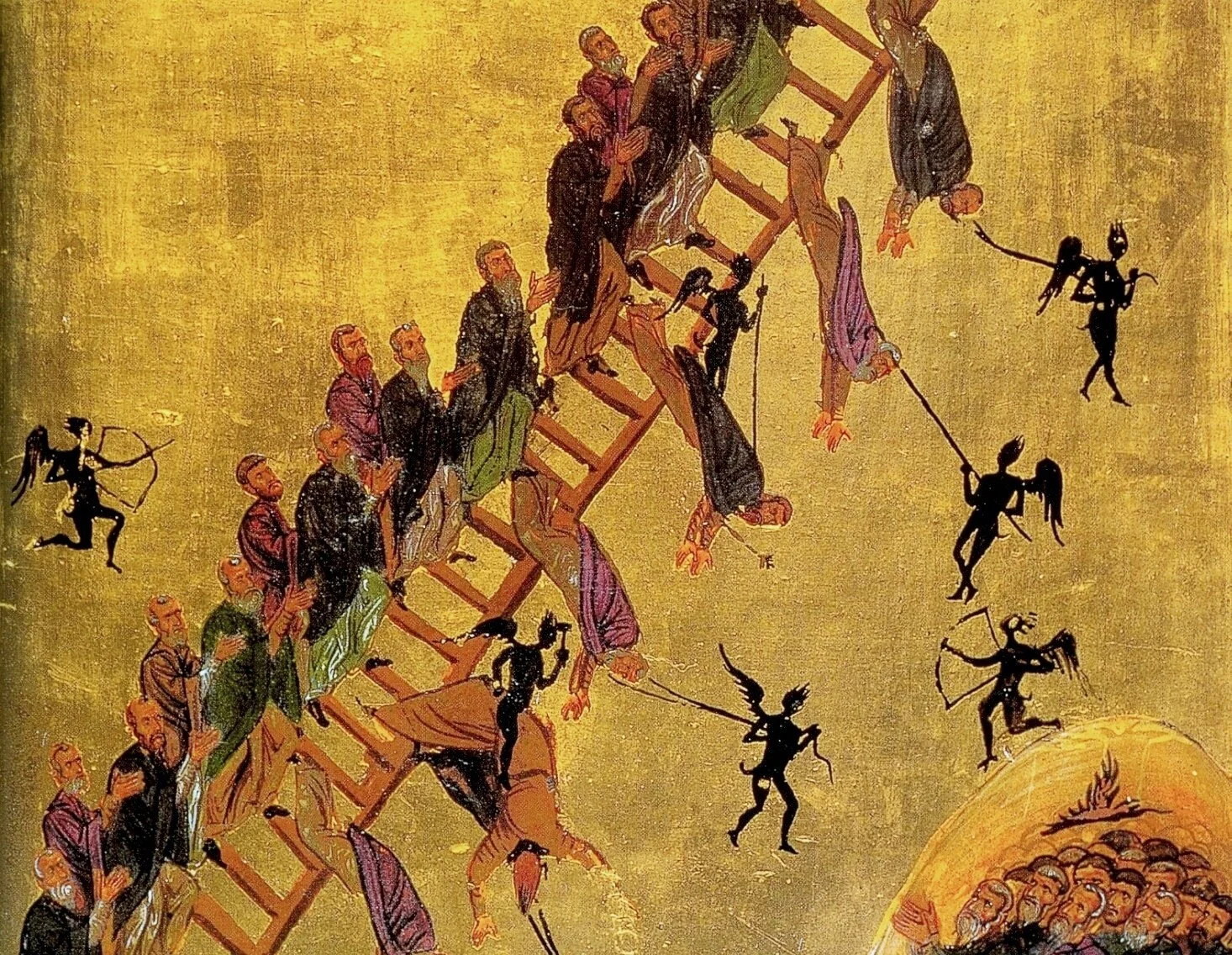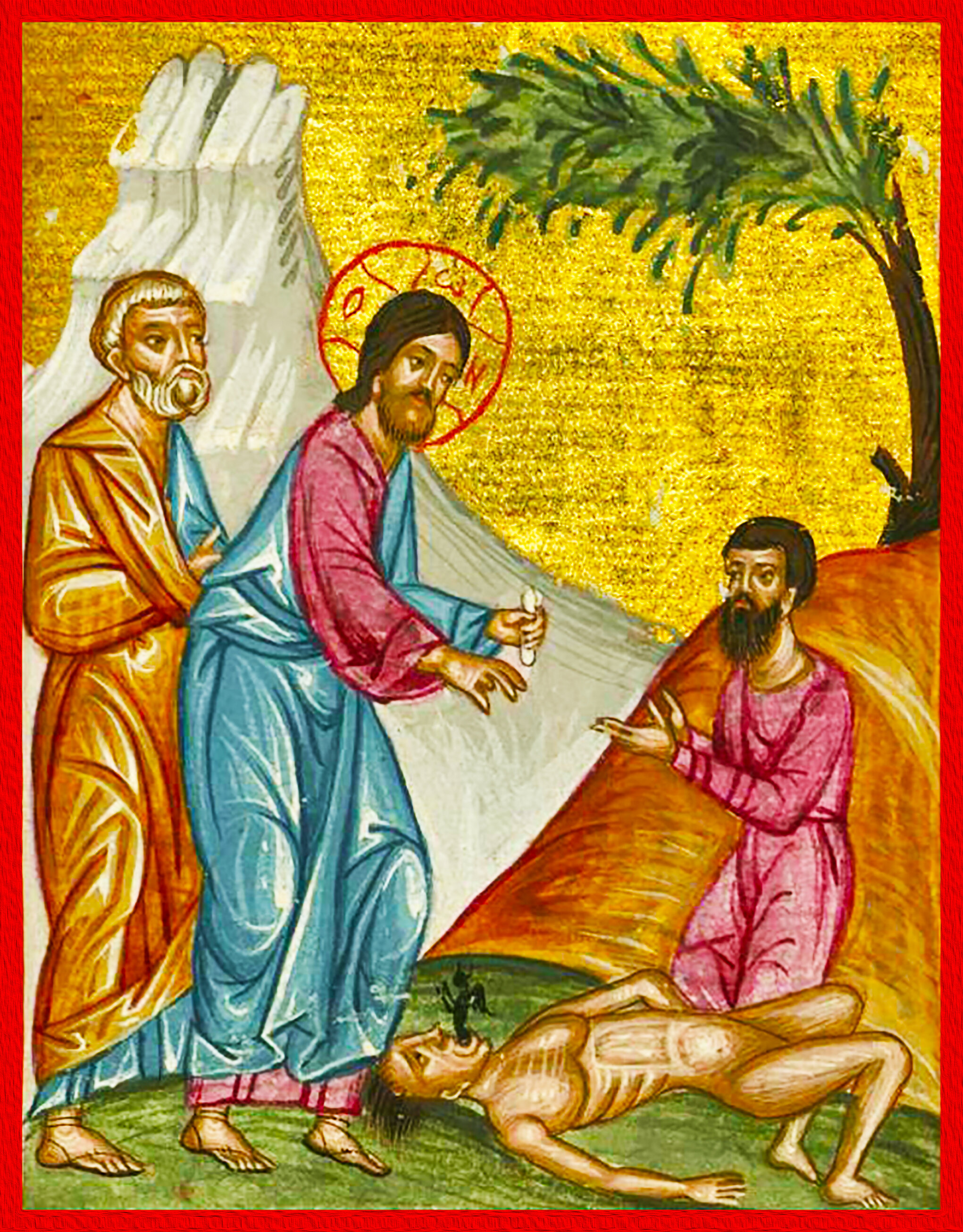by Fr Gabriel-Allan Boyd
That title is taken straight from the Gospel Reading for this coming Sunday. You can read it for yourself in Mark 9:17-31.
Our current pandemic of illness and its consequential “Shelter in Place” has afforded us a wonderful opportunity to contemplate and grow in our Orthodox Christian faith. Our Church attendance is something that’s supposed to be the excuse we use to miss other things, however, in recent years, that’s been entirely turned on its head and lost…so that people use everything else (from visiting out-of-town family, to children’s sports—or other extracurricular activities, to a myriad of other things, including mere laziness,) as an excuse for us to miss attending Church. Up until recently, it’s been remarkably easy for most of us to take for granted that our Church will always be there at our beck and call whenever it’s convenient for our schedule…and thus, we’ve also bought into some rather foolish notions about what constitutes belief in God. But scripture tells us that belief in God involves a certain amount of devotion to fulfilling His will…and yet Orthodox Christians often do very little to grow in understanding what is God’s will. When times are going well for us, we very easily set God aside to put our faith in other things, like our careers, our trying to accumulate wealth for ourselves, or our children’s training in some secular pursuit. If we’re willing to be honest with ourselves and we pay close attention, we discover that we’ve often wavered in and out of faith in God, trading Him for belief in other things. At times (usually when we feel comfortable with the things God is giving us according to our will), we may feel like our faith in Him is as strong as it could possibly be. But then when difficult circumstances come along, like a politician who makes a mess of things, or a difficult divorce or the loss of a job, or business failure or a viral pandemic...and suddenly God isn’t doing what we think He should be doing, then we wonder where in the heck God has disappeared off to. We’ve lost our faith that God knows what He’s doing when tragedies come along. And in taking a good, hard look at ourselves, we discover that both our personal desires, and our fears have been extinguishing the transformative and healing power of Christ in our lives. Just imagine for a moment what was going through the hearts and minds of all of Christ’s followers when the Jewish leaders closed in all around Him to bring about His crucifixion. These disciples had spent three years walking alongside Him. They’d experienced the Trinity being revealed at His baptism. They’d listened to countless sermons by Him. They’d encountered many personal, one on one conversations with Him. They’d witnessed Him perform incredible miracles of healing. And when Jesus’ good friend Lazarus had died and the stink of decay had already begun, they watched Jesus raise him from the dead. Yet when He was suddenly captured, beaten, crucified on the cross…and died…when God was suddenly not doing what they thought He should be doing, they were quickly filled with enormous doubts—and they scattered off into cowardly hiding. It’s no wonder that, as a preface to all of that, in this Gospel Reading from Mark 9, Jesus called his disciples a “faithless generation.” Not only were the disciples unable to cast out the demon…but they also couldn’t understand the Savior’s prediction of His own death and resurrection. Just like that boy whose demon kept him from being able to hear and from being able to speak…neither could they hear what Christ was trying to tell them, nor could they yet proclaim the miracles to come. At this point in their journey, these disciples weren’t really very good models of faithfulness…and maybe they are presented to us in that way here, so that through them, we can learn a little about ourselves and our own pathetic faith. Of course, part of their problem was that they felt they had more belief than they actually had. It just goes to show that we shouldn’t always believe the things we feel.
Today, if we were to find the most mature, pious and faithful Christian on earth (whoever that might be), we would soon discover that their spiritual maturity brought them to the realization that they were still a faithless unbeliever. There have been quite a few accounts of saints on their deathbed, who express their desire to have just a little more time to repent—to grow further in Christ-likeness. It’s not something they said to merely sound more pious. They’re describing a very real need in their life and in all our lives. The truth is, the more we grow in our belief in God…the more we discover just how far away from His likeness we actually are—how much we still need to be transformed into unity with Him. So, in reality, most of us are in various junctures of both belief and disbelief.
Each of us are strong believers in God in some ways…and we are also, each, anemic believers in God in other ways. And usually, where we are stronger believers in God, others are weaker…and where we are weaker believers in God, others are stronger. Therefore, our task is to lead each other into more mature belief in Christ…AND…to be led by one-another into more mature belief in Christ—by God’s grace, to help each other with our unbelief.
The child in this Sunday’s Mark 9 Gospel Reading, isn’t merely a child in a story. There’s a reason why this account from Christ’s life is given to us at this point in Great Lent. That deaf/mute child in this story is an image of our own souls. That child, who the demons are constantly trying to destroy, represents each of us, who the demons are also trying to destroy. Even if we’re incessantly climbing every rung of St John Climacus’ ladder of virtues hoping for greater belief…we discover that the demons keep pulling us off into disbelief and into the very depths of failure and darkness. We’re constantly at battle with our demons, with our own broken-will toward temptation, and into deeper weakness. And at this point in Lent (especially when we add in the extra challenges of “Sheltering in Place” amidst a destructive viral pandemic), if we’ve struggled at all, we should now have a very good sense of just how broken and faithless we can be. And with this honest realization of our own lack of belief, the only way we can find healing is to want it as desperately as the father in this story. Can we, at this point, finally care about our own soul as urgently as this father cares about his son? Can we come to the Lord begging, “Please heal the tortured child that is this soul of mine”? If we can, then Jesus responds to us, “Do you believe that I can do this?...because anything is possible for whoever believes.” In other words, “Do you really have enough belief in Me to abandon yourself? Are you willing to abandon your own will to take on My will? Have you begun disciplining yourself by prayer and fasting in this abandoning of your own will?” The proper response is, “Lord I believe…help me with my unbelief! Help my unbelief by helping me abandon my own self-will. I now understand that You, are the one who reigns and I give You control over my soul. God, You’re the one I bring my broken, sick child of a soul to, so that You can bring it back to life and so that You can bring it to wholeness and health.” We need to say this with a real desire to change our lives in Him, because Jesus won’t do anything with our souls without our permission. In devotion to Him as the only source of true life, we need to invite Him in, to let His will reign over our heart. When, by His grace, we unite our will with His will…that’s when Jesus helps our unbelief. I can’t help but wonder if it was the boy’s father in this story who, in desperation, had actually started fasting and praying, hoping to get his broken son into the presence of God for healing.
What Jesus is saying to us is, “You may have some belief, but that belief has to be tested and grow and blossom and bear fruit.” Our faith is meant to grow, like that tiny mustard seed that Jesus mentions elsewhere, which grows into the largest of all the herbs. But, as we come to terms with the brokenness and the weakness of our own soul…we desperately need God’s help with our lack of belief and we need each other’s help to bring us to Christ as well. So, let’s begin crying out to God, “I believe…help me with my unbelief.” This COVID-19 pandemic affords us the perfect opportunity to begin finding such spiritual clarity in our Lord.



